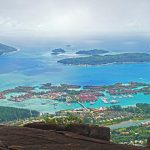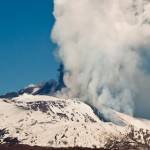Located on the West Coast of Africa, Sierra Leone is formed from low-lying land, represented by a 100km coastal belt, and from a gradually raising mountain plateau that can reach heights of up to 2000m, which also shelters rich timber forests.
Its main commercial center and capital, Freetown, stands on Sierra Leone’s peninsula which is around 17km wide and 40km long – it also shelters a mountainous interior, just like the other regions of the country.
If you plan to visit Sierra Leone, keep in mind that the country has a tropical climate, with high humidity and warm temperatures, of course. During the night, the temperature will rarely get less than 24 degrees Celsius; during the day, the average is around 30 degrees Celsius.
The rainy season, which may cause floods, is from April to September. Until then, from October to March, the weather is characterized by sunny days and dryness. Also, the months of July and August mark the moment when rainfall increases.
In terms of terrain, Sierra Leone has available for you a coastal belt of mangrove swamps, and upland plateau, a wooded hill country, and mountains in the east. Its highest point is Loma Mansa, of 1,948m. Among some big cities that can be visited, such as Freetown, Bonthe, Bo, and Makeni, the country has available the Banana and Turtle Islands as well – these two being the tourists’ favorites.
However, before you start packing, you might wonder if is Sierra Leone safe to visit. Traveling through a foreign country comes with certain dangers that everyone should be aware of – that’s why, today, we have come up with a Sierra Leone safety guide, to help you prepare for your holiday.
Highest Risks You Expose Yourself to When Visiting Sierra Leone
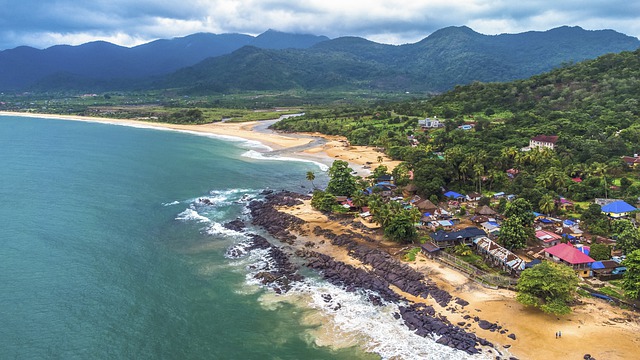
Overall Risks in Sierra Leone: LOW to MEDIUM
As you can see here, the country of Sierra Leone is generally safe; however, you have to seek travel advice before getting on the plane. This is because of the recent terrorist attacks that have taken place in some of its neighboring countries, such as Mali and Burkina Faso.
This means that it is marked by a low threat of terrorism, and therefore you should be cautious when exploring the land. Moreover, it is not recommended that you travel during the night, as the risk of various crimes increases. After all, it’s always better to stick to the daylight.
Pickpocketing and Theft Risks in Sierra Leone: MEDIUM
Mugging and pickpocketing, or basically petty crime, are still some of the main issues most countries have nowadays – therefore, Sierra Leone has these problems as well. Reportedly, these are the most common crimes that are committed in this country.
Areas like Lumley Beach, Congo Cross, Aberdeen, and Wilkinson Road are the most dangerous in terms of crime, as they have the highest crime percentages in Sierra Leone. Moreover, many roads don’t have sources of lighting available, a thing that makes you susceptible to being mugged.
- How to avoid pickpocketing and theft in Sierra Leone?
We’ll start our Sierra Leone safety guide by counting the things you must do in order to ensure your safety while exploring the country’s cities. First of all, you should avoid displaying any expensive items, such as gadgets or jewelry – they are best kept in your backpack.
Then, you should not leave your accommodation after dark – as we mentioned before, the roads are poorly lit and there’s the chance that you might attract some unwanted attention.
You should also plan ahead your means of transportation – this implies a minimal use of public and local transportation, such as taxis, Ocadas (motorbikes), and poda-podas. Some reports state that the drivers and/ or passengers of these means of transportation usually have accomplices that will attempt to pickpocket or mug you.
Scam Risk in Sierra Leone: LOW
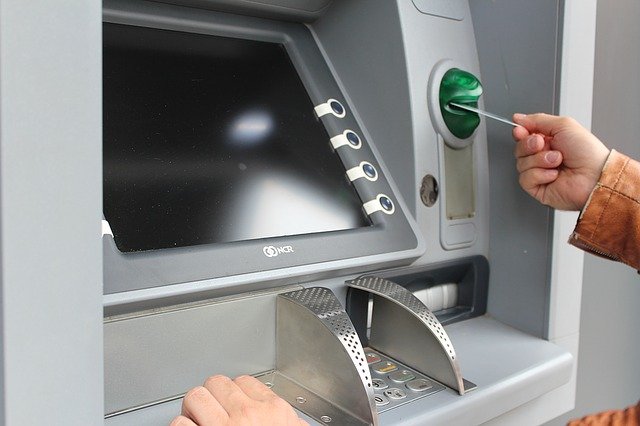
There are no reports of common scams usually occurring in Sierra Leone. However, some of you may know that this country is well-known for the illicit gem trade, as well as for diamond and gold trading.
- How to avoid getting scammed in Sierra Leone?
Therefore, if you are planning to trade or buy certain parcels in Sierra Leona, it is recommended that you get informed on the gold and diamond scams that usually occur here. It is not a matter that should be taken lightly, as gold shipping prices can go as high as a couple of thousands of dollars.
You may come across fake documentation or requests to pay upfront a certain sum that will assure you of a certain service – it is best if you take all of these with a pinch of salt.
Moreover, you should also know how to protect yourself from the more common scams that you might be put face to face with – for example, as a rule of thumb, you should always withdraw money from inside the bank, and don’t use ATMs as they might be rigged.
Kidnapping Risk in Sierra Leone: LOW
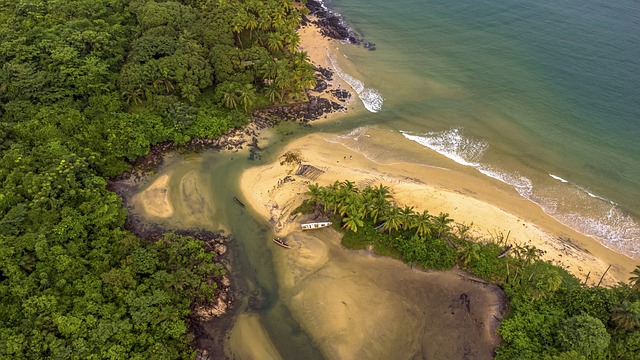
There are no recent reports of kidnappings happening in Sierra Leone. Also, no officials have been involved in such cases – therefore, you shouldn’t be worried that something like this might happen.
However, our list of Sierra Leone safety travel tips has included some of the ways through which you can protect yourself from such cases.
- How to avoid getting kidnapped in Sierra Leone?
First of all, you should stay away from any remote areas. Stick only to the paths that are usually taken by tourists and don’t wander or separate from your group. Moreover, avoid traveling at night, as you might never know what could happen – a robbery, a mere fight, or even a kidnapping.
Our Sierra Leone safety guide advises all travelers to be cautious even in regard to situations that might not exist in this country – be vigilant.
Terrorism Risk in Sierra Leone: LOW to MEDIUM
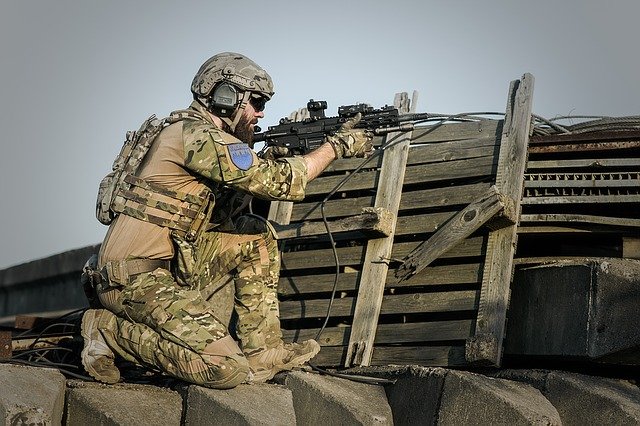
There is a low terrorist threat in Sierra Leone, but this is due to the events that have occurred in the neighboring countries, as we have mentioned earlier. Because of this, the terrorist attacks can’t be ruled out and travelers should remain vigilant at all times.
- How to avoid terrorism in Sierra Leone?
You should avoid large crowds of people and demonstrations, especially if these occur near official buildings, as those are likely to be targeted.
If you notice something unusual, it is recommended that you flee the area and alert the authorities as soon as possible.
Risks for Women Traveling Alone in Sierra Leone: MEDIUM
We know that there are many women travelers out there that have probably asked themselves the following question: is Sierra Leone safe for solo women travelers?
The answer could be yes, but only if those said travelers take all the required precautions before traveling. But even then, we strongly recommend that you do not travel alone, even if you are a man or a woman.
- How to avoid crime as a solo woman traveler in Sierra Leone?
Nothing serious may happen to you, but the alone traveler is prone to be pickpocketed, robberies, muggings, and such. That’s why one of our Sierra Leone safety travel tips recommends that you get a guide that you can trust if you are traveling alone.
Plan ahead your entire holiday and make sure that your person of contact is from a reputed company – and you will most probably have no problems while discovering Sierra Leone.
Rape Risk in Sierra Leone: LOW to MEDIUM
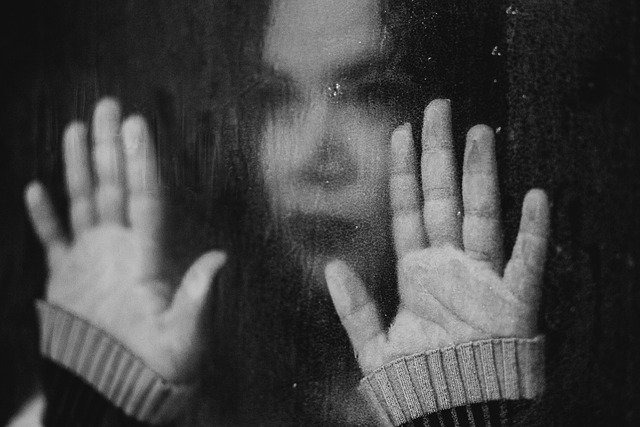
According to various sources, there have been 1,491 rape cases in 2017. However, these occur mostly in rural areas, due to the low level of education, dense population, and the patriarchal system.
There have been 526 cases in Kono and 431 cases in Kenema, so be sure to avoid these locations, especially if you are traveling with younger people or with children – as over 56% of the victims were aged between 11 and 15 years old and 25% of them were aged 16 to 20 years old.
- How to avoid getting raped in Sierra Leone?
While this kind of scenario mostly happens on a local level, it is recommended that you be cautious as well when visiting Sierra Leone. If you are wondering how safe is Sierra Leone for tourists, the answer is that they must be many in order to be safe.
Generally, as with any other African country, it is not recommended that you travel alone – but if you happen to be in such a situation, make sure that your guide can be trusted. Also, avoid remote areas, rural areas like the ones we’ve mentioned a bit earlier, and walking around the town during the night.
Risks for People Traveling With Children in Sierra Leone: LOW to MEDIUM
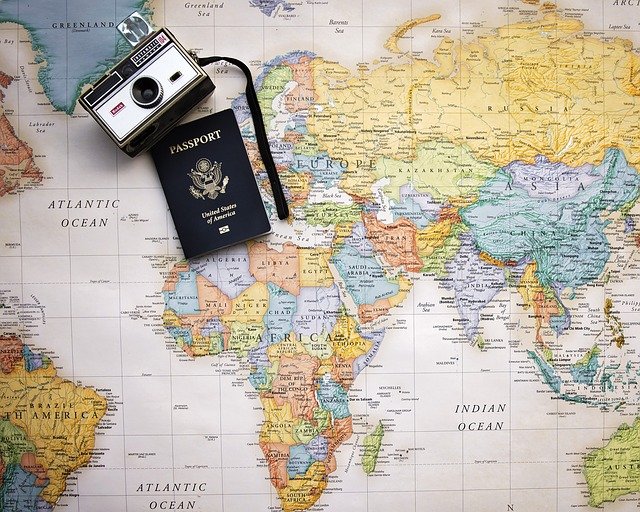
As long as you keep an eye on or have someone look for your children at all times, you should really have no issues. When it comes to children, most of the time it matters what they do rather than what someone can do to them.
- How to avoid unwanted scenarios?
They can get easily lost if you don’t keep an eye on them – and this means that you will have to go look for them on the streets of Sierra Leone. This is not something we wish to happen, so you should better keep them in your sight.
After all, if you ask yourself how safe is Sierra Leone for tourists, keep in mind that it is as safe as you make it!
Natural Disaster Risks in Sierra Leone: MEDIUM
In terms of natural disasters, you can expect landslides, storms, floods, fires, and electrical storms to occur. However, landslides have the highest mortality rate, at 42.7%, therefore you should double-check the roads and areas you want to go through before getting into your car.
Floods, on the other hand, have a mortality rate of 19.7%, so you’d want to be careful when traveling around Sierra Leone, especially if you do so in the rainfall season.
Transportation Risks in Sierra Leone: MEDIUM
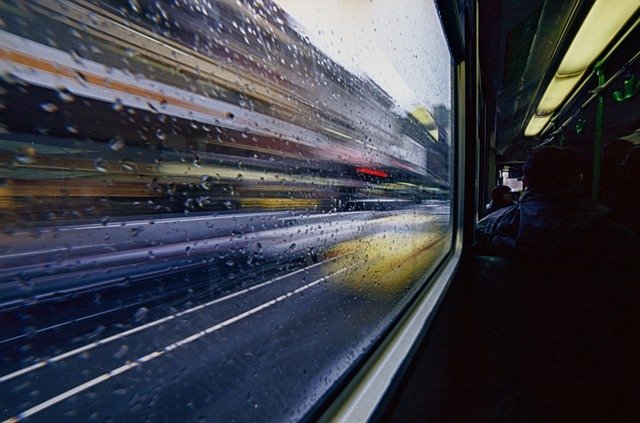
If you travel to Sierra Leone by plane and will land at the Lungi airport, keep in mind that it is located on the far side of an estuary from Freetown and the journey from the airport to the city takes around 3 to 5 hours. You can reach Freetown by ferry, boat, water taxi, pirogues, or local boats.
You can rely on all of the aforementioned services while making sure that you do not embark on local canoes and wooden pirogues - for a safer trip, it is recommended that you choose one of the 3 main water taxi operators, as they run reliable services and have safe vessels available.
Moreover, if you want to spend a night in a Lungi Airport hotel, it is recommended to book very early, as rooms are both limited and in high demand. However, if you want to reach Freetown as soon as possible, you should definitely prearrange pick-up - keep in mind that there are no cars for hire or similar services at the airport.
It is advised that you use any car for hire services only when needed - never during the night and only when necessary during the day, as the risk of road traffic accidents is high.
If you plan to travel outside of Freetown, it is recommended that you do so in a convoy and have someone to report your progress to. Come up with a plan/ schedule for your trip and take the necessary measures in case of an emergency.
In terms of road travel, driving is usually erratic, motorbikes being the main issue - roads usually come with little to no lighting, and vehicles, especially motorbikes, have no lights. Reports say that serious traffic accidents are quite common in Sierra Leone.
The FCO advises all travelers/ tourists to not travel outside the Freetown peninsula during the night and to not rely on local taxis, poda-podas (minibuses), or motorbikes, also known as ocadas.
Also, keep your eyes wide open as children are known to sometimes place a rope across the road and then ask for a small fee/ donation for the mending of the said road - in case you refuse, they lift the rope. This incident usually occurs during the weekend and on roads that lead to the tourist beaches of the Western Area.
Night-Clubs, Pubs, and Bar Risks in Sierra Leone: LOW to MEDIUM
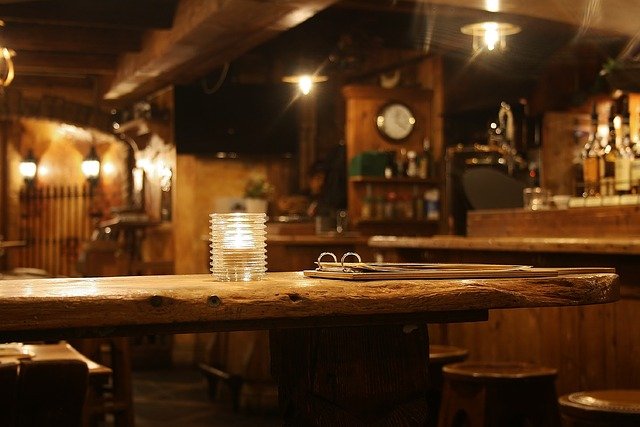
At the moment, there are no reports of violent incidents that have taken place in nightclubs, pubs, or bars. Travelers/ tourists are usually more prone to being robbed or pickpocketed, especially in Freetown. However, you should still be cautious if you plan on visiting one of the aforementioned locations.
In terms of night-club, pub, and bar safety, we strongly recommend you to keep an eye on your drink - even if incidents of drink spiking haven't been reported yet, there's a chance that such practices may be used by criminals in order to facilitate mugging and violent assault. Naturally, you should also not be drinking too much, as the alcohol in Sierra Leone is known to come with a rather strong punch, especially that known as "packet alcohol".
When it comes to safety, you should know when to return to your accommodation - don't stay in such locations too much; you should leave them in the evening and have a taxi from a reputed company take you back to your accommodation. In case of violence happening around you, you should also leave the location.
Obviously, avoid displaying large sums of money while inside a bar - doing so increases the chances of you being robbed/ pickpocketed when you leave the location.
Health Risks in Sierra Leone
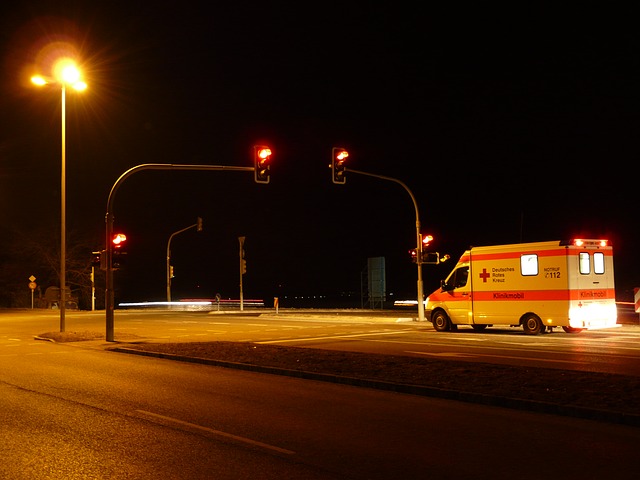
Even though the WHO declared the country as free from Ebola transmission, it is still recommended that you keep an eye out for any symptoms - if you are worried that you might have been exposed to the disease or showing any symptoms, you should seek medical advice immediately.
Among the diseases and afflictions, you should pay attention to are Lassa fever, rabies, malaria, water-borne diseases, as well as other tropical diseases - there are common in Sierra Leone; the vaccine against yellow fever is mandatory if you wish to enter the country.
It is also recommended that you drink/ use only bottled or boiled water while in Sierra Leone, as Cholera is endemic here, especially during the rainy season. You should also avoid drinks that contain ice.
As always, make sure that you travel equipped with proper travel health insurance and that you have enough funds to cover the costs of any treatment or medicine that you might have to take. You should also pack up a first-aid kit, along with any medication that you might need during your trip. If you leave Freetown for a road trip, it might be difficult for you to find a drug store or the medicine you need.
List of Vaccines You Need in Sierra Leone

Of course, you must get protected against some types of viruses before going to Sierra Leone. Here is a list of the vaccines you should take, but remember to consult your doctor for more detailed information:
- Malaria
- Yellow Fever
- Hepatitis A
- Typhoid
- Routine Vaccines
- Rabies
- Hepatitis B
Most Dangerous Areas in Sierra Leone
- Congo Cross, Lumley Beach, Wilkinson Road, and Aberdeen - these areas come with a number of reports telling of tourists being robbed and, at times, threatened at knife-point.
Concluding Remarks: Is Sierra Leone Safe to Visit?
Like most African countries, Sierra Leone does come with beautiful sights that every traveler should see. Despite poverty and other issues, people here do their best to keep their tradition and culture intact, and that’s what matters the most.
Therefore, the answer to the question is Sierra Leone is safe to visit is yes – but you still have to take some basic precautions to make sure that your trip will go as planned.

